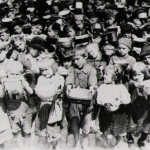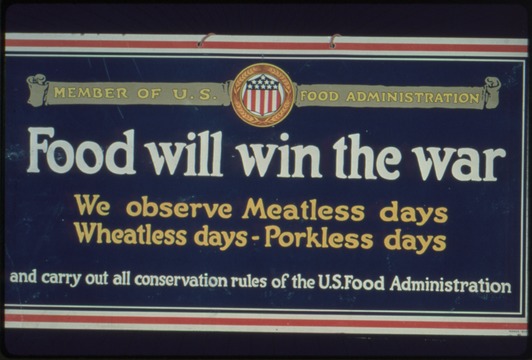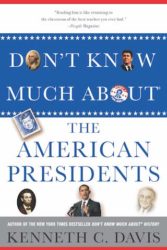[Originally posted August 10, 2015; updated 8/10/2023]

“We are challenged with a peace-time choice between the American system of rugged individualism and a European philosophy of diametrically opposed doctrines— doctrines of paternalism and state socialism. . . . Our American experiment in human welfare has yielded a degree of well- being unparalleled in all the world. It has come nearer to the abolition of poverty, to the abolition of fear of want than humanity has ever reached before.” –Herbert Hoover, “Campaign Speech” (October 22, 1928)
Herbert and Lou Henry Hoover in their Washington, DC home the morning after he was nominated to run for president (1928). (Courtesy: The Herbert Hoover Presidential Library & Museum)
Born on August 10, 1874, Herbert Clark Hoover, the 31st president of the United States. Herbert Hoover was born into a Quaker family in Iowa, and orphaned at nine. He went to live with relatives in Oregon. A college education at Stanford led to a career in the mining industry and a great personal fortune. You may know that he was the Republican president when the Stock Market crashed in 1929 and he attempted to lead the country through the first years of the Great Depression. Hoover was defeated by Democrat Franklin D. Roosevelt in 1932.
But you may not know that Hoover was considered a hero and savior to millions of people. First during World War I, he had organized food relief programs in war-torn Belgium.
According to the Herbert Hoover Presidental Museum and Library, Hoover was named to head the U.S. Food Administration, which guided the effort to conserve resources and supplies and to feed America’s European allies.

National Archives https://catalog.archives.gov/id/512516
“Hoover became a household name—‘to Hooverize’ meant to economize on food. Americans began observing ‘Meatless Mondays’ and ‘Wheatless Wednesdays’ and planting War Gardens.”
Later, in the aftermath of World War I, Russia was in the throes of Europe’s greatest calamity since the days of the Black Plague. More than five million died in the new Soviet Russia when famine struck. In 1921, Herbert Hoover led America’s response to the “Great Famine,” subject of a PBS documentary and is credited with saving millions of lives.
Hoover gets hard knocks for the hard times of the Depression and his flawed response to the problems confronting America. But others assess him more generously. Historian Richard Norton Smith once noted:
“Herbert Hoover saved more lives through his various relief efforts than all the dictators of the 20th century together could snuff out. Seventy years before politicians discovered children, he founded the American Child Health Association. The problem is, Hoover defies easy labeling. How can you categorize a ‘rugged individualist’ who once said, ‘The trouble with capitalism is capitalists; they’re too damn greedy.’ ”
“Remembering Herbert Hoover,” New York Times, August 10, 1992
During the food scarcity in the height of the Covid pandemic, I wrote about Hoover’s wartime efforts in this post: “Where Is Herbert Hoover When We Need Him?”
Some Fast Facts about Herbert Hoover:
✱ Hoover was the first president born west of the Mississippi.
✱ His wife, Lou, was the only female geology major at Stanford when they met. They later collaborated on a translation from Latin of a mining and metallurgy text, De Re Metallica, published in 1912. While they lived in China, the Hoovers lived through the 1900 Boxer Rebellion and both learned Chinese, and they sometimes spoke to each other in Chinese at the White House.
✱ Hoover’s inaugural in 1929 was the first to be recorded on talking newsreel.
✱ Hoover was the first of two Quaker presidents. (The other was Richard M. Nixon.)
President Hoover died on October 20, 1964 in New York City. He was 90 years old. Hoover’s New York Times obituary. The Herbert Hoover Presidential Library & Museum offers archival materials and online exhibitions.
You can read more about Hoover in Don’t Know Much About® the American Presidents (Hyperion Books/Random House Audio)